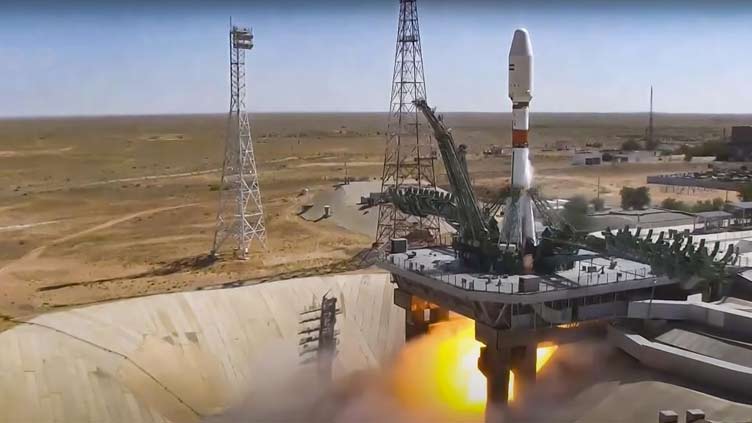Russia successfully launches Iranian satellite

World
Russia successfully launches Iranian satellite
MOSCOW (AP) — A Russian rocket on Tuesday successfully launched an Iranian satellite into orbit.
The Soyuz rocket lifted off as scheduled at 8:52 a.m. Moscow time (0552 GMT) Tuesday from the Russia-leased Baikonur launch facility in Kazakhstan.
About nine minutes after the launch, it placed the Iranian satellite called Khayyam into orbit. It’s named after Omar Khayyam, a Persian scientist who lived in the 11th and 12th centuries.
Iran has said the satellite fitted with high-resolution camera will be used for environmental monitoring and will remain fully under its control.
Tehran said no other country will have access to information it gathers and it would be used for civilian purposes only, but there have been allegations that Russia may use it for surveillance of Ukraine amid its military action there.
If it operates successfully, the satellite would give Iran the ability to monitor its archenemy Israel and other countries in the Middle East.
Yuri Borisov, head of Russia’s state space corporation Roscosmos, hailed the launch as an “important landmark” in cooperation between Moscow and Tehran.
Iranian state television aired footage of the launch live, noting that the country’s telecommunications minister attended the liftoff in Kazakhstan. Tehran said the satellite will help improve productivity in the agriculture sector, survey water resources, manage natural disasters, confront deforestation and monitor border areas.
Citing Iran’s civilian space agency, state television said the satellite would provide high-resolution surveillance images with a one-meter-per-pixel definition. Western civilian satellites offer around half-a-meter per pixel, while U.S. spy satellites are believed to have even-greater definition.
Iran has both a civilian and military space program, which the U.S. fears could be used to advance its ballistic missile program. However, Iran has seen a series of mishaps and failed satellite launches over recent years.

